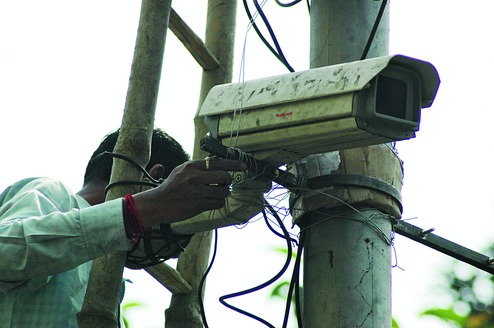
Berhampur: Around 100 closed-circuit television (CCTV) cameras have been installed at the district and sessions court and about 15 other courts here.
A control room has also been opened at the court for managing the gadgets.
Last year, the Supreme Court had said the installation of CCTV cameras in courts would be seen from the point of view of larger public interest, discipline and security.
"Installation of CCTV cameras on the court premises had been a long-time demand of the Ganjam Bar Association. Hearing on a criminal petition, the Supreme Court had directed all high courts and district and sessions courts to install the cameras inside the courts," said senior advocate and Bar association secretary Prakash Das.
With the installation of a number of CCTV cameras on the court premises, vigil can be kept on the accused and gangsters, who are brought to the court. "Also, it will help to conduct probe into any incident occurring on the court premises," said Das.
The other courts, where the cameras have been installed, include the family court, court hearing deposit collection scam cases, vigilance court, chief judicial magistrate court, additional chief judicial magistrate court, sub-divisional judicial magistrate court, assistant sessions judge court, three additional district judge courts, two civil judge senior division courts, one civil judge junior division court and the four judicial magistrate first-class courts.
The apex court had favoured the camera installation with audio recording of all court proceedings, including in its own complex, along with those of the high courts and tribunals, to bring in transparency. It had then observed that the constitutional courts in other countries had audio and video recording facilities, as it was not a matter of privacy of judges. So, it had directed the Centre to submit a feasibility report on the installation of CCTV cameras with audio recordings in courts and tribunals.
"The top court had cited the example of judicial proceedings in the US Supreme Court, saying all these were available publicly, even on YouTube," senior advocate and former president of the Bar association Basant Panda said. "The top court had, however, made it clear that the footage of the cameras or the audio recordings would not be made available under the Right to Information Act and supplied to anyone without permission of the concerned court," said Panda.











